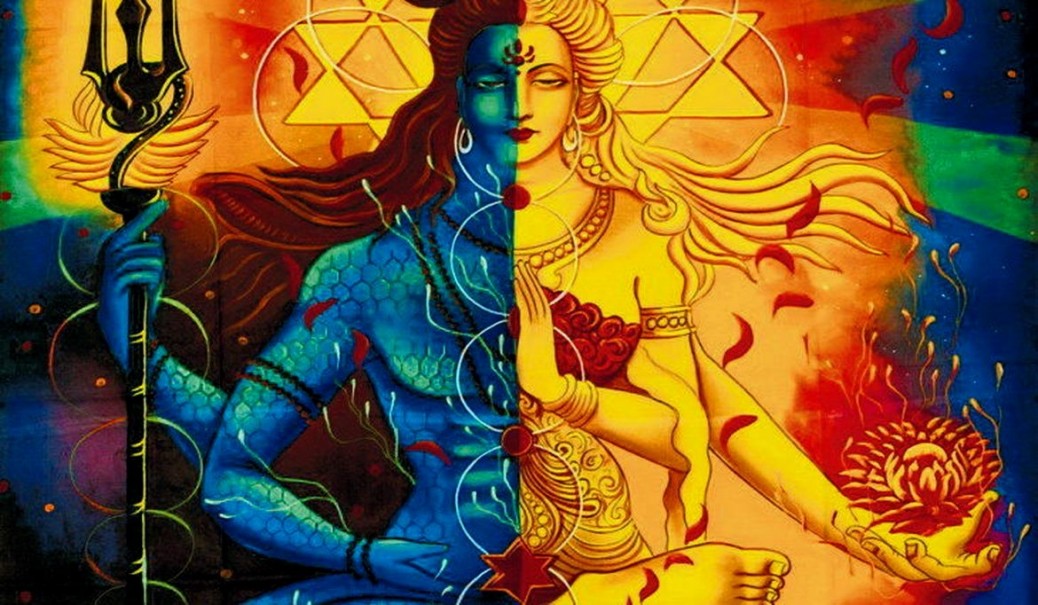VBT – Meditation 56.4
No Thought Is Ever Original
Whenever a person says ‘mine,’ he is falling in ignorance. This sutra is to break this very illusion. Not only the land is not mine, the house is not mine, the money is not mine; even the body is not mine. Your body is made up from the atoms of your parents. Those atoms existed before you were, and they are coming to you after a long journey. Before your parents, they were in the bodies of their parents. These atoms have had a long journey of millions of years; now they constitute your body. That body too is a field, a land in which you are rooted, but you are not it. You are not the body, you are separate from it.
This sutra says a man is not only not the body, it goes even deeper and says man is not even the mind, because the mind is also an accumulation.
Do you have a single thought which may be yours, which you can say is yours? There are none. Some have come from tradition, some from scriptures, some from hearing someone, some from your reading – they have come from one or the other external sources. If you search for the birth chart of your every single thought, if you look at the journey of every single thought, you will find you don’t have a single thought of your own, they are all borrowed; they have come to you from somewhere.
No thought is ever original, all thoughts are borrowed. But we claim even a thought to be ‘mine.’
Remember, even a breath cannot be called ‘mine’; thought is a much more subtle matter. Going deeper and deeper into this analysis, where does one come to? Where have the Upanishads come to? Where does Buddha come to? Where does Mahavira come to? Continuing this analysis, using the negation: “I am not this, I am not this”; when in the end nothing remains to be negated, when nothing remains about which I can even think whether it is mine or not, that which remains even then…. When there is nothing left to cut, when all relations are broken and none remains that can still be broken, that which remains even then is what the Upanishads have called sakshi, the witness.
There is a big world around me – it is not mine. Shrinking I come closer – this body is not mine. Descending deeper into it – the mind is not mine. Then who is there whom I can call ‘I’? Or is there nothing in me which I can call ‘I’? Am I, or am I not? Cutting away ‘mine’ in its entirety, what purest thing remains within? Only one thing remains which is not discarded; there is no way it can be discarded.
In the West there was a philosopher named Descartes – a deep thinker. He decided not to accept anything until he found the truth which cannot be doubted, so he began to reflect. He labored hard and he felt everything was doubtful. One may say “God is,” but a doubt can be raised about it. God may or may not be, but a doubt can always be created. “There is heaven,” “There is liberation” – it can all be doubted. Descartes said, “I will believe only in a thing which cannot be doubted, not something that can be proved, or argued in favor of, no. Something that cannot be doubted, something which is inevitable, indubitable… only then I will accept it.”
He searched and searched. However he too stopped at one point. He denied God, heaven, hell, and everything else, but he got stuck at one point – “Am I or not?” Descartes said, “This cannot be doubted, because even if I say ‘I am not,’ then too I am needed to be able to say this.” It is like a person who is in the house and who answers the caller, “I have gone out,” or “Right now I am not in the house. Come back in a little while and then I may meet you because by then I will be back home.” His very telling this will be the proof of his being at home. So the fact of my being is indubitable. This much is clear, that I am. Though what I am is not so clear. Am I a body, or a mind, or what? – This is not so clear.
Tags: No Thought Is Ever Original




